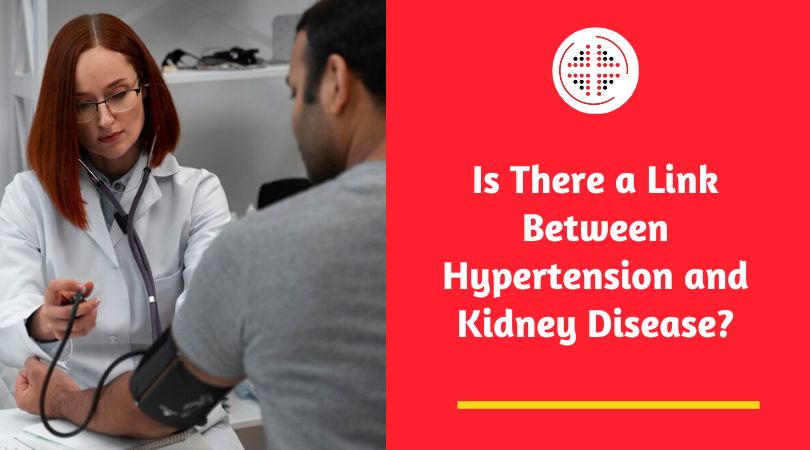


Hypertension, or high blood pressure, affects millions worldwide and contributes to various health issues. What many might not realize is its profound impact on the kidneys. Kidneys, those bean-shaped organs tucked away in our lower backs, are responsible for filtering our blood and play a pivotal role in maintaining a delicate balance within our bodies. Studies show that hypertension ranks as the second-leading cause of kidney disease after diabetes and accounts for 28% of new cases. It is also one of the leading causes of kidney failure, or End-Stage Renal Disease (ESRD). Nearly 1 in 4 people have kidney failure due to high blood pressure. The statistics establish a link between hypertension and kidney disease.
This blog, while explaining the link between high blood pressure and kidney disease, also discusses their symptoms, causes, risk factors, diagnostic procedures, and when you must visit a healthcare provider for your hypertension-related kidney issues.
When the blood that circulates through your body exerts increased pressure on the blood vessel walls, the condition is known as high blood pressure or hypertension. The constant pressure on the walls causes damage to the blood vessels. It affects blood flow in your body, including the blood circulation through the blood vessels that carry blood into the kidneys.
The kidneys' primary function is to filter out wastes and toxins from the blood. However, due to insufficient blood supply, the kidney malfunctions. This leads to excess fluid build-up in the blood vessels, further increasing your blood pressure levels. All this adds to creating a cyclical process where hypertension causes kidney disease and kidney disease worsens hypertension.
Both high blood pressure and kidney diseases are among American adults' most common health concerns. Around 108 million people, which is 1 in 2 U.S. adults, have hypertension, and nearly 37 million people have kidney disease, which is 1 in 7 U.S. adults.
The immediate impact of hypertension on the kidneys is that the renal arteries that carry blood into the kidneys are damaged due to high blood pressure. They become narrow, stiff, and weak, impacting the blood flow into the kidney. As a result, the filtering units within the kidney (nephrons) do not receive sufficient amounts of oxygen and nutrients from the blood that they need for the filtration process.
The kidneys functioning is affected as they cannot remove all the liquid and solid waste substances from the body. Over time, it leads to kidney damage and, subsequently, kidney failure.
Most people with high blood pressure and kidney disease do not realize that they have the disease as they usually show no symptoms in their early stages.
However, if your blood pressure exceeds 180/120 mmHg, you may experience:
Likewise, you may observe swelling in the legs, feet, and ankles much later for kidney disease. This condition is edema, which occurs due to your kidneys' inability to filter out extra fluids and salts from the body. In some cases, swelling is also seen in the hands and face.
With advanced kidney diseases, you may have the following symptoms:
High blood pressure and kidney disease often go hand in hand due to various factors. Here's what contributes:
Causes of Kidney Disease:
To know whether you are more likely to have high blood pressure or kidney disease, you must be aware of the factors that put you at high risk.
You are at a higher risk of having high blood pressure:
The factors that put you at a higher risk of suffering from kidney disease are:
Your physician will measure your blood pressure using a blood pressure screening machine. If your blood pressure reading shows the top number (systolic) to be between 130-139 mmHg and the bottom number (diastolic) between 80-89 mmHg, they will diagnose you with hypertension.
For kidney disease diagnosis, your physician will use:
Both hypertension and kidney diseases do not show symptoms initially. You must visit your primary care doctor for regular check-ups. This allows them to provide preventive care that puts you at a lesser risk for the diseases. Also, detecting the conditions in their initial stages equips you to manage your symptoms better.
At MI Express Primary Care, we specialize in hypertension treatment. Our team creates personalized plans supervised by board-certified physicians, including medication, counseling, and lifestyle support. Regular reviews ensure your treatment fits your needs.
If you are looking for the best primary care services for hypertension in Canton or Ann Arbor, MI, contact us today.